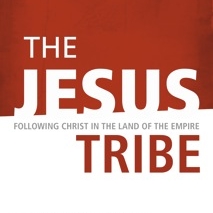 Roger Williams arrived in Massachusetts almost four centuries ago, just a decade after the first Pilgrims disembarked from the Mayflower. He joined that Puritan effort to build a “city on a hill,” to prove to the nations of the world how God’s people should live. How did things go for Roger? Not so good. He never got that Puritan thing figured out.
Roger Williams arrived in Massachusetts almost four centuries ago, just a decade after the first Pilgrims disembarked from the Mayflower. He joined that Puritan effort to build a “city on a hill,” to prove to the nations of the world how God’s people should live. How did things go for Roger? Not so good. He never got that Puritan thing figured out.
After beginning his role as pastor of the church at Salem, Massachusetts, it didn’t take long for Williams’ sermons to ignite an inferno of controversy. He was quickly branded as a heretic, persecuted by the government, put in constant fear for his life, forced to evade deportation back to Europe, and eventually exiled into the New England winter, an exile that remained law on the Massachusetts books until 1936.
What caused Roger so much trouble in the New World? He relentlessly preached liberty of conscience and believed that an individual should have the freedom to choose his or her religious expression, even the right to choose no religion at all. Roger Williams believed in the revolutionary idea that there should be a separation between church and state.
This was a novel idea four hundred years ago. In some circles it still is. Yet, Roger Williams believed in it and practiced it. Rhode Island, the tiny colony he eventually formed, became a safe haven for some of the first Jews, Quakers, Baptists, and other religious dissidents coming to the New World.
Williams didn’t share the beliefs of these variegated groups and often debated with them publically. But he believed they had the God-given right to practice faith as they saw fit, without outside interference.
Using a metaphor that should be repeated in our own day, Williams said the church was like “a garden.” Everything that was aligned with self-seeking power – governments, corporations, systems of control – he called these “the wilderness.” He believed that those churches that gave up their unique role as witnesses to Christ to join with power, even power that “worked,” were permitting the wilderness to intrude upon the garden.
As such, these churches would be manipulated, compromising on issues of love, justice, and mercy. Or those same churches would become the manipulators themselves, using civil power to force their beliefs on others. Such force was the worst of spiritual violations, “like compelling an unwilling spouse to enter into a forced bed,” Williams preached.
Either way, when church and state drank from the same cup, it would be the church that would be poisoned. Roger Williams’ counsel to the Christian church in his day is lasting: Learn to live in the world and bear witness to Christ in it, but do not become a part of it. Or he might say, “Plant a garden in a wilderness; but do not bring the wilderness into the garden.”
William Willimon strikes a similar chord. Once in an interview he was criticized for holding opinions that led Christians to shirk their social responsibilities and to withdraw from society. He responded that yes, Christians should live out their faith, but they should take great care not to force their faith. Faith should be practiced, Willimon said, “like porcupines making love…very carefully.”
All these years after Williams’ exile, I am thankful that we have the freedom and privilege to live out and practice our faith in this country. But like Williams, I do not believe that those privileges can become tools of coercion and force to accomplish some “spiritual” or Christian end.
Faith is an issue of the heart, not a public policy. Faith can empower believers to light a society with grace, love, goodness, and hope, but faith should not be used as a manipulative weapon in the dark, power-play systems of the world.
I know I’m not with the Puritan program either, but standing with Williams I believe that rulers have no right to enforce religion, and religions have no right to enforce rule. To take a different path is to plant the wild and wooly seeds of the wilderness in the garden of faith.
